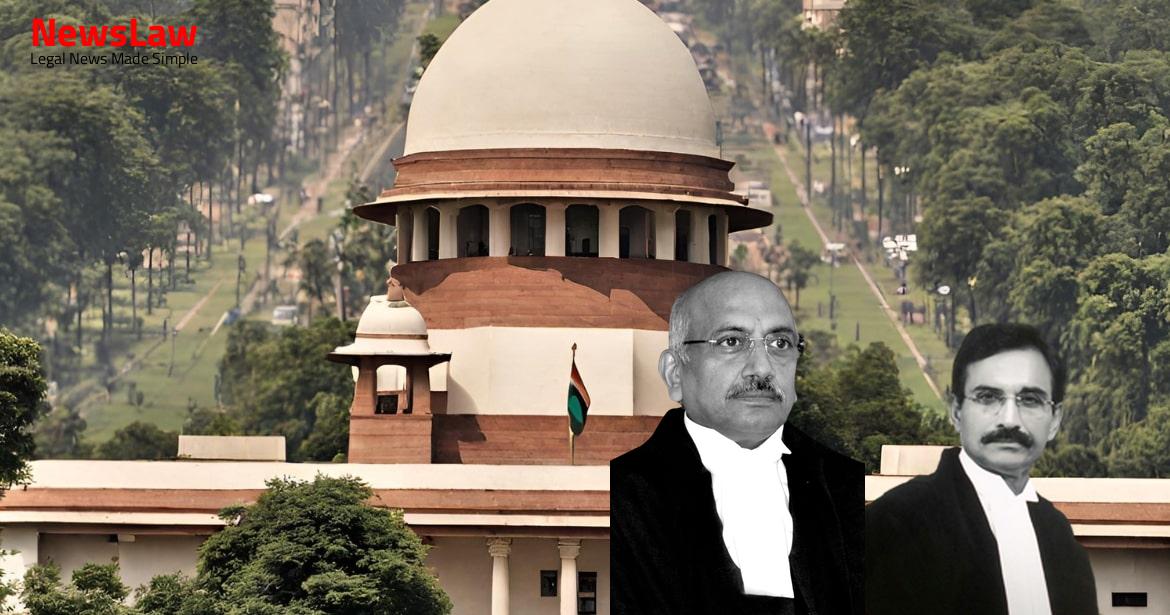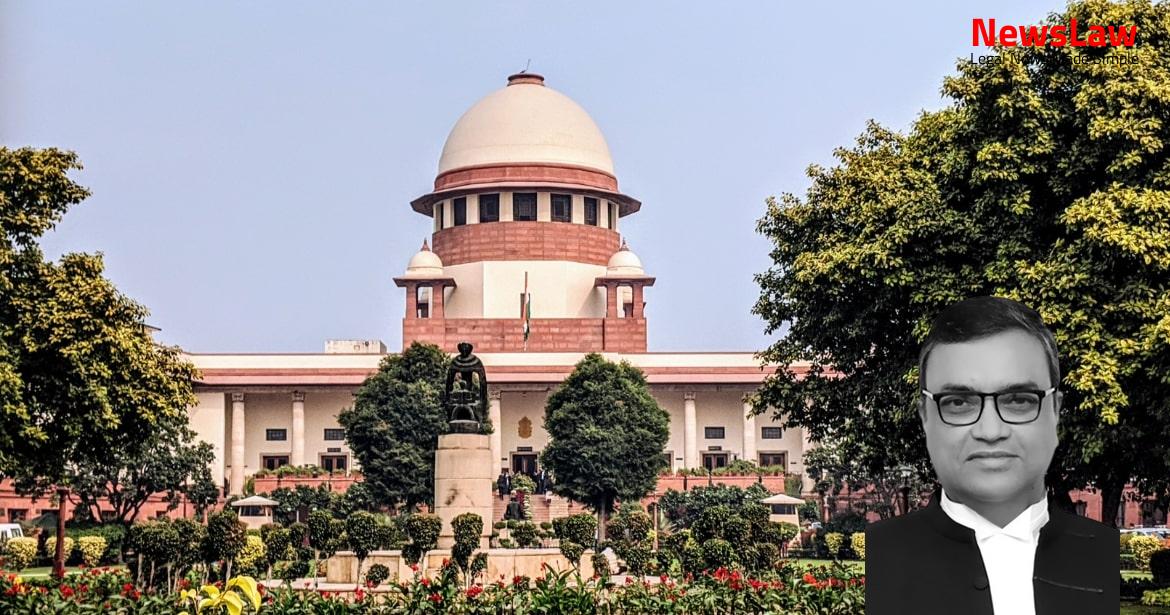Haryana Utilities had entered into two Power Purchase Agreements (“PPAs” for short) on 7 August 2008 with Adani Power Mundra Limited (hereinafter referred to as “AP(M)L”) for procurement of contracted capacity of 1424 MW from generating units 7, 8 and 9 established by AP(M)L at Mundra in the State of Gujarat. AP(M)L had filed Petition No 155/MP/2012 on 5 July 2012 before the CERC seeking, inter alia, relief of increase in tariff on various grounds. Both the letter dated 31-7-2013 and the revised Tariff Policy are statutory documents being issued under Section 3 of the Act and have the force of law.
………. The Central Electricity Regulatory Commission will, as a result of this judgment, go into the matter afresh and determine what relief should be granted to those power generators who fall within Clause 13 of the PPA as has been held by us in this judgment.” It may be mentioned that this Court, in the case of Energy Watchdog (supra), specifically rejected the claim that the increase in price of coal due to change in Indonesian Regulations would also amount to Change in Law. The learned APTEL framed the following four issues for consideration: “ Issue No.1:- Whether the Central Commission was justified in holding that Adani Power’s bid was based entirely on domestic coal availability and hence entitled to Change in Law relief on account of domestic coal shortfall?
Also Read: https://newslaw.in/case-type/criminal/abuse-of-process-of-law-a-case-of-delayed-fir-filing/
Ramachandran, learned Senior Counsel appearing on behalf of the appellants and Dr. Singhvi, learned Senior Counsel appearing on behalf of the respondent No.1- AP(M)L. Shri Ramachandran further submits that a perusal of the various pleadings of AP(M)L would clearly reveal that AP(M)L’s bid was premised on domestic and imported coal in the proportion of 70:30. Learned counsel submits that in view of the pleadings of AP(M)L, it was clear that it was its responsibility to procure 30% imported coal. He submits that had there been no Change in Law and AP(M)L had received the entire quantum of domestic coal, it would have had to bear the prevalent price of landed domestic coal on its own, irrespective of whether such cost is below or above the quoted energy charges in the bid. He submits that though the Standing Linkage Committee (Long-Term) (hereinafter referred to as “SLC (LT)”) has considered AP(M)L’s application for 100% coal of its total capacity, it has granted linkage only for 70% of 1980 MW, i.e. When we heard this batch of Electricity appeals, it was agreed between all the parties that this Court should first decide Civil Appeal
No 684 of 2021 ( Maharashtra State Electricity Distribution Company Limited v. as against 100% of normative coal requirement assured in terms of NCDP 2007 OR restricted to trigger levels in NCDP 2013 viz.
The remaining two issues that are required to be considered in the present appeal are thus: “ Issue No.1:- [as framed by the learned APTEL]
Whether the Central Commission was justified in holding that Adani Power’s bid was based entirely on domestic coal availability and hence entitled to Change in Law relief on account of domestic coal shortfall? APML and Others (supra), after considering the relevant provisions under the Electricity Act, 2003 with regard to constitution of various expert bodies like the CEA, CERC and the learned APTEL, held that these bodies are bodies consisting of experts in the field. None of the documents placed on record would reveal that a representation was given by AP(M)L that its bid is based on 70% domestic and 30% imported coal.
Also Read: https://newslaw.in/case-type/criminal/analysis-of-circumstantial-evidence-conviction-reversed/
AP(M)L has offered to supply 1425 MW of power from its Phase IV extension of Mundra Project, having a capacity of 1980 MW.
It could thus be seen that AP(M)L would be entitled to benefit on account of the Change in Law if there was any shortfall of 70% of the domestic coal as was decided to be allotted by the SLC (LT) in its meeting dated 12 November 2008, culminating in the Ministry of Coal (for short, “MoC”) issuing a LoA dated 25 June 2009 and the Fuel Supply Agreement (for short, “FSA”) being signed by AP(M)L with CIL on 9 June 2012.
It has been its stand that AP(M)L should use the entire domestic coal availability towards the contracted capacity of the appellants first, and then use the imported coal for the deficit to reach the targeted PLF. It is further to be noted that the learned APTEL had, during the course of the hearing, put a pertinent query to the learned counsel appearing for Haryana Utilities, as to whether the entire actual coal received from MCL was used towards the power supplied under the Haryana PPAs. In any case, the learned APTEL has clarified that AP(M)L was neither claiming nor was entitled to claim any Change in Law compensation beyond the one which was covered by linkage coal, i.e. Undisputedly, in the case of Energy Watchdog (supra) as well as in Adani Rajasthan case (supra) this Court has held that on account of the Change in Law, the generating companies were entitled to compensation so as to restore the party to the same economic position as if such Change in Law had not occurred.
In other words, the finding of the CERC and the learned APTEL is to the effect that AP(M)L would not be entitled to any benefit of Change in Law beyond 70% of the installed capacity i.e. No.57 of 2017 in Petition No.97/MP/2017, which reads thus: “7…… Haryana Utilities who is the only respondent has not objected to the calculation made by the Applicant.”
Also Read: https://newslaw.in/case-type/criminal/quashing-of-proceedings-in-criminal-case-no-542-of-2020/
The learned APTEL had also referred to the order dated 3 December 2018 passed by the CERC in Review Petition bearing No.24/RP/2018, which reads thus: “25… Its apparent from the above that the Commission, after due consideration of the submissions of the Adani Power and Prayas had consciously decided on the methodology for computation of relief due to shortage of domestic coal under change in law for the period from 1.4.2013 to 31.3.2017 in Para 46 of the impugned order.
After accepting before the CERC that they would adopt the methodology as given in the case of GMR Kamalanga Energy Limited (supra), it would not be appropriate, in our view, on the part of the appellants, which are, after all, instrumentalities of the State, to change its stand after final orders are passed by the CERC.
Case Title: UTTAR HARYANA BIJLI VITRAN NIGAM LTD Vs. ADANI POWER (MUNDRA) LIMITED (2023 INSC 401)
Case Number: C.A. No.-004143 / 2020



